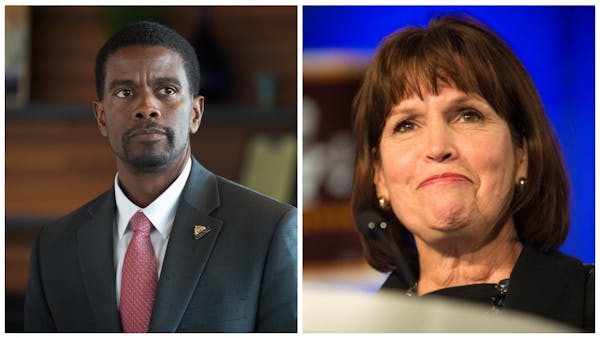St. Paul will move forward with a program to provide cash assistance to some of the city's poorest families, now that the City Council voted unanimously Wednesday to allocate more than $290,000 in federal CARES Act money.
The 18-month People's Prosperity Guaranteed Income Pilot, which Mayor Melvin Carter established with a Sept. 3 executive order, will provide $500 a month for up to 150 families with young children. The program will be open to qualifying participants in College Bound St. Paul, the city's college savings account program, and will not be limited to just four ZIP codes, as originally planned.
Council members have said that a guaranteed income program belongs at a higher level of government, but they have also expressed support for helping families struggling during the pandemic. Like similar programs across the country, the pilot will contribute to a growing body of research on how monthly government payments affect the lives of poor Americans.
"We need some of the data on this, and we need to show that helping people does help the economy and does help people in their times of need," said Council Member Chris Tolbert.
The council on Wednesday also approved the use of $3.2 million in CARES Act dollars to reimburse the Housing and Redevelopment Authority for expenses related to the St. Paul Bridge Fund, which provided emergency cash assistance to low-income families and small businesses that lost income as a result of the COVID-19 pandemic.
St. Paul got $23.5 million in CARES Act money through the state and must spend it by mid-November. CARES dollars will pay for the first three months of the $1.5 million guaranteed income pilot, and philanthropic contributions are expected to cover the rest.
Council members were scheduled to approve both CARES Act appropriations last week, but postponed their decision after U.S. Rep. Betty McCollum raised concerns about using federal stimulus dollars to fund the guaranteed income program.
City officials say the program qualifies for CARES Act money because participants must demonstrate financial hardship resulting from the COVID-19 pandemic. Finance Director John McCarthy told council members that other cities, including Austin, Texas, Fresno, Calif., and Oklahoma City are using their CARES money for similar programs.
"We're aware of the different parameters around the dollars and feel really confident that we're aboveboard on everything and are headed down that pathway," Muneer Karcher-Ramos, Office of Financial Empowerment director, told the council. He said the city will work with recipients to ensure they don't lose other benefits because of the increase in income — another concern of McCollum and council members.
Carter has asked the City Attorney's office to draft a new executive order that opens the program to qualifying low-income families across the city, Karcher-Ramos said, after council members questioned the ZIP code limit.
Council Member Rebecca Noecker asked that, in the future, she and her colleagues get an earlier look at these kinds of programs and spending decisions.
"Let's ask these questions not when we're on the line with the funding dangling in front of us and a deadline approaching quickly, but far in advance," she said. "I just think we can be much more collaborative about this and work smarter together."
Emma Nelson • 612-673-4509
Robbinsdale shelter-in-place alert accidentally sent countywide
Developer of St. Paul's Keg & Case food hall declares bankruptcy

Wildlife agency: Sturgeon won't go on endangered species list

Minnesotans interviewed to serve on Feeding Our Future trial

